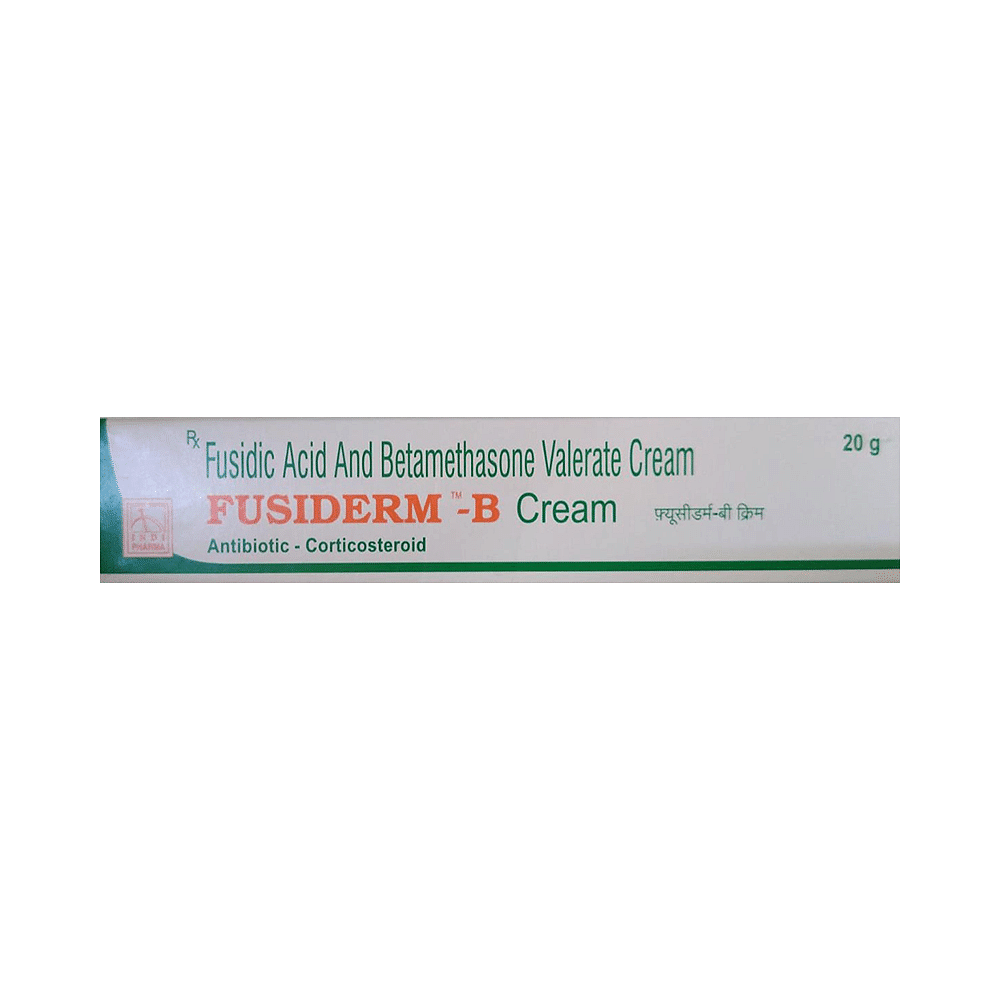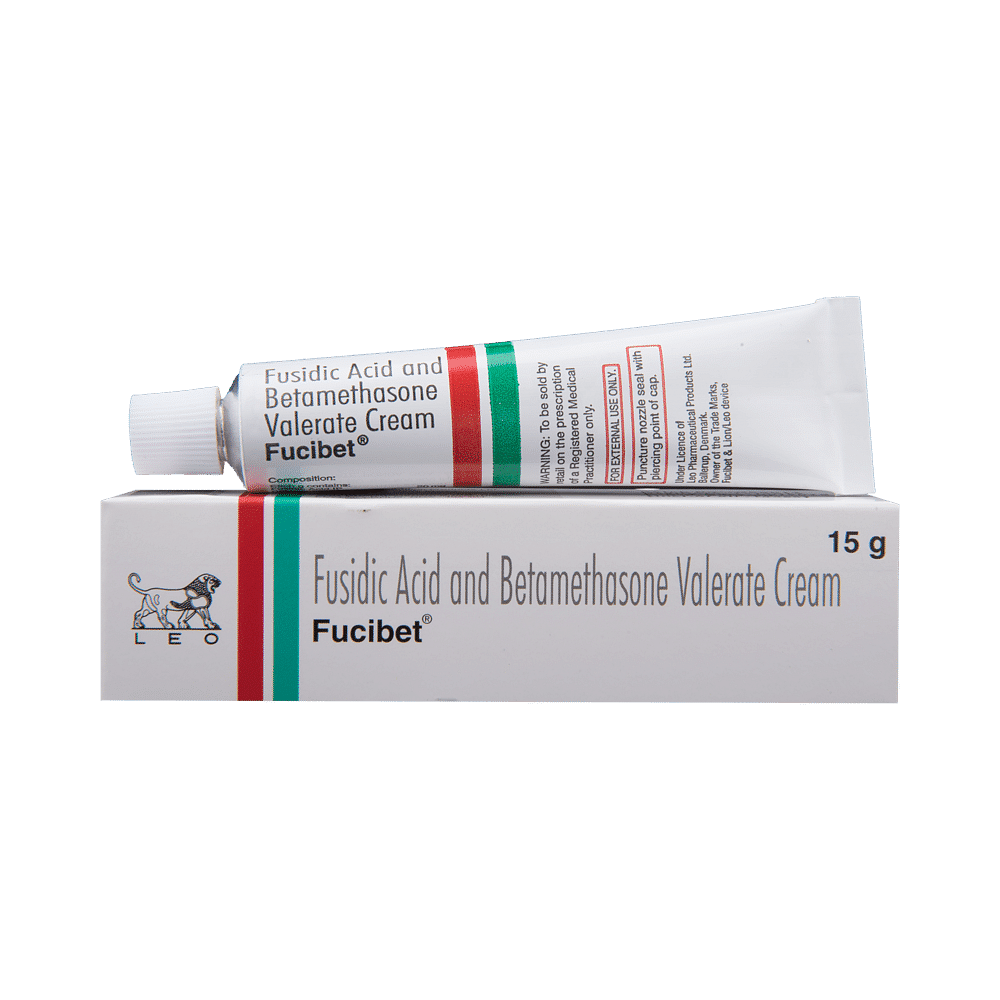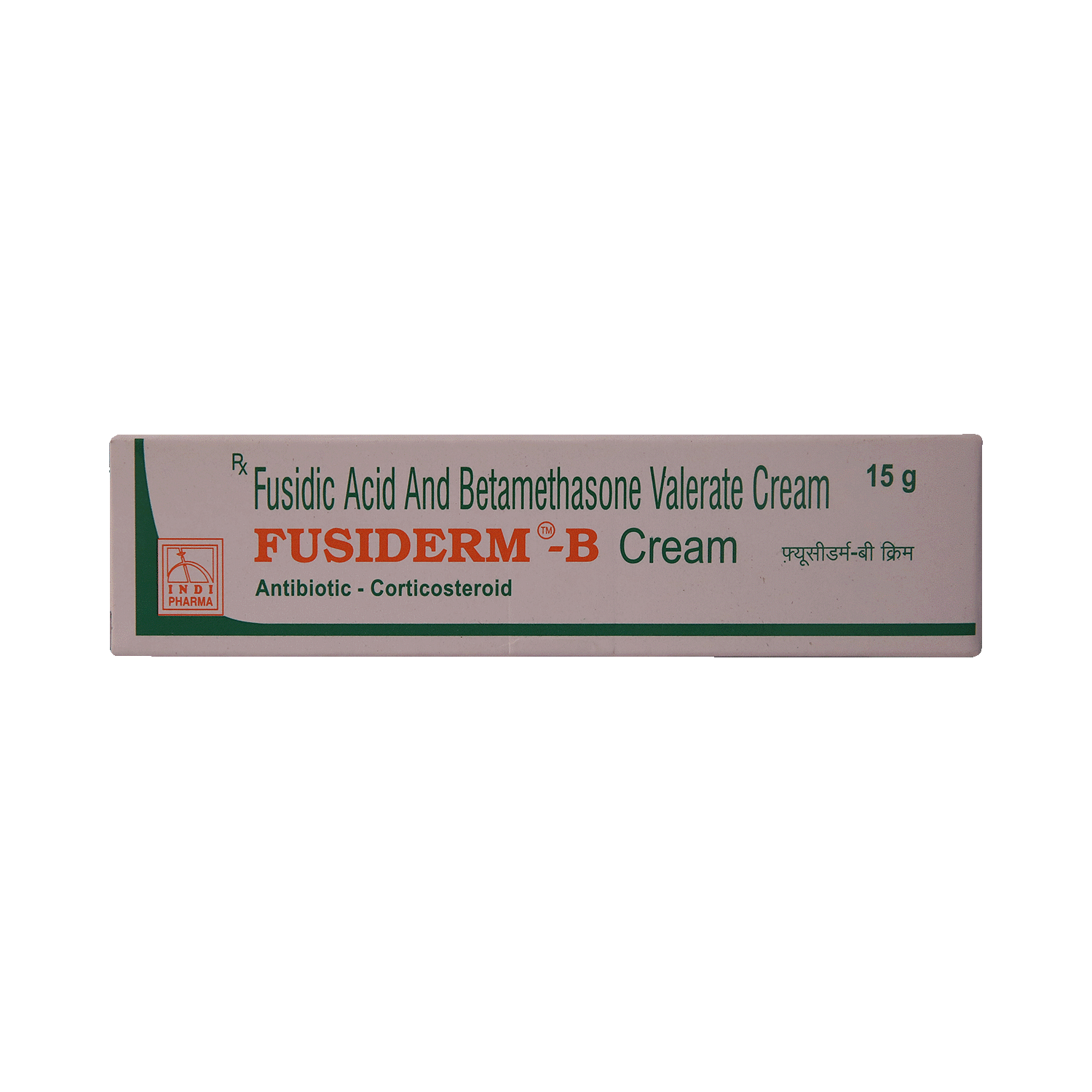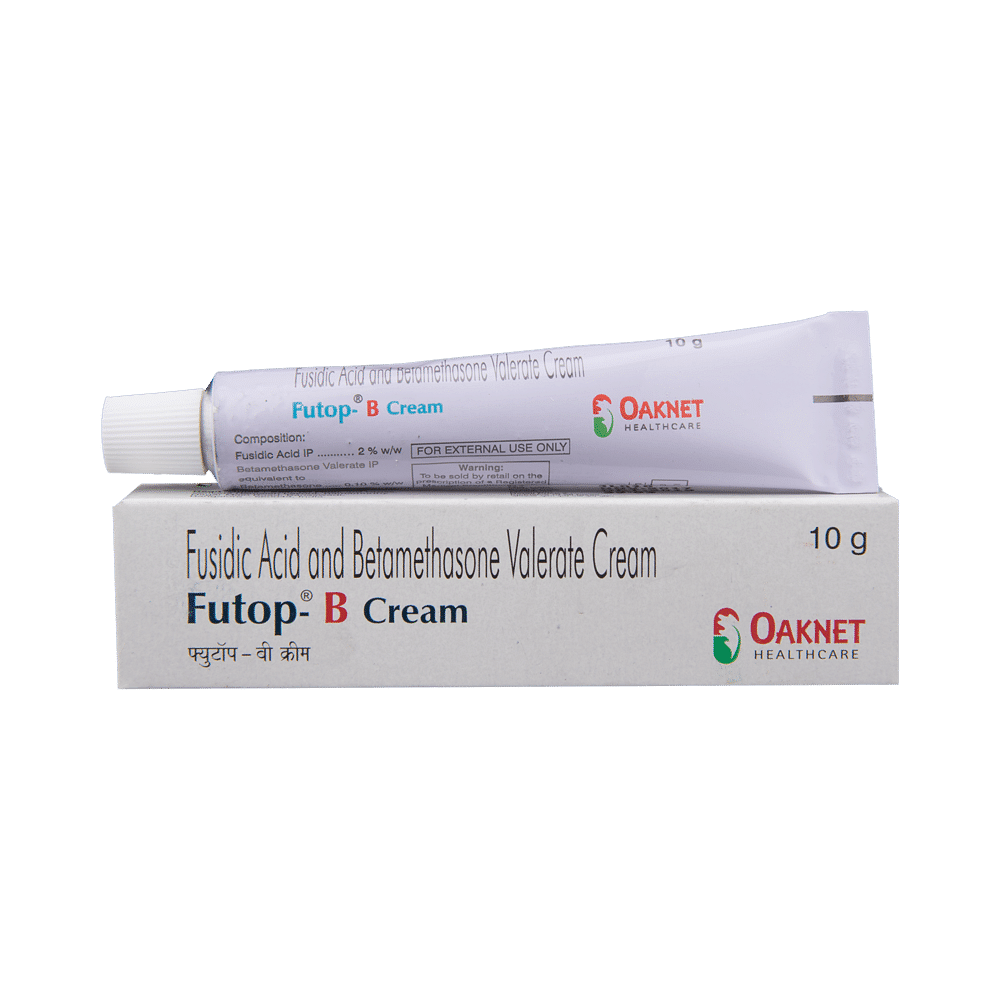
Fucigud B Cream
Manufacturer
Rowlinges Life Science
Salt Composition
Betamethasone (0.1% w/w) + Fusidic Acid (2% w/w)
Key Information
Short Description
Fucigud B Cream is a combination medicine used to treat various types of skin infections, minimizing symptoms of inflammation such as redness, swelling, and itching.
Dosage Form
Cream
Introduction
Fucigud B Cream is a combination medicine that is used to treat various types of skin infections. It minimizes symptoms of inflammation such as redness, swelling, and itching. It also has antimicrobial action against infection-causing microorganisms.
Directions for Use
This medicine is for external use only. Use it in the dose and duration as advised by your doctor. Check the label for directions before use. Clean and dry the affected area and apply the cream. Wash your hands after applying unless hands are the affected area.
Safety Information
Side Effects
No common side effects listed.
Alcohol Warning
No interaction found/established
Breastfeeding Warning
Information regarding the use of Fucigud B Cream during breastfeeding is not available. Please consult your doctor.
Pregnancy Warning
Fucigud B Cream may be unsafe to use during pregnancy. Although there are limited studies in humans, animal studies have shown harmful effects on the developing baby. Your doctor will weigh the benefits and any potential risks before prescribing it to you. Please consult your doctor.
How it works
Fucigud B Cream is a combination of two medicines: Betamethasone and Fusidic Acid which treats skin infections. Betamethasone is a steroid medicine. It blocks the production of certain chemical messengers (prostaglandins) that make the skin red swollen and itchy. Fusidic Acid is an antibiotic. It stops bacterial growth by preventing the synthesis of essential proteins required by the bacteria to carry out vital functions.
Related Medicines

Fucibet Cream

Fusiderm-B Cream

Fucibet Cream

Fusiderm-B Cream

Fusitop B Cream

Fusibact B Cream

Fucitos B Cream

Futop-B Cream

K Fusi B Cream

Fusitop B Cream
Frequently asked questions
How should I use Fucigud B Cream?
To use Fucigud B Cream effectively, apply a thin layer to cover the affected area as directed by your doctor or according to the product label. It's essential to follow the recommended dose and complete the full course of treatment, even if symptoms improve before the infection is fully cured. Remember to wash your hands after using the cream unless it's being used to treat hand infections.
Should I stop using Fucigud B Cream when my symptoms are relieved?
No, you should not discontinue using Fucigud B Cream and complete the full course of treatment, even if your symptoms improve. Stopping too soon can lead to incomplete recovery from the infection.
What precautions should I take while using Fucigud B Cream?
When using Fucigud B Cream, avoid applying it to the face and be cautious not to get it in your eyes. Also, do not cover the treated area with a bandage or dressing as this can increase the medicine's absorption and risk of side effects. Only use the cream for the condition it was prescribed for and consult your doctor before using it for any other issue.
What could happen if I use a higher than recommended dose of Fucigud B Cream for an extended period?
Using higher doses or prolonged periods of Fucigud B Cream can lead to adrenal suppression, Cushing's syndrome, weight gain, high blood pressure, and rounding of the face. It may also cause changes in skin color at the application site, visible veins due to skin thinning, and increased hair growth.
What are the instructions for storing and disposing of Fucigud B Cream?
Keep Fucigud B Cream in its original packaging and store it according to the product label or provided instructions. Dispose of any unused medicine properly, ensuring it's not accessible to pets, children, or other individuals.
Are there any contraindications associated with using Fucigud B Cream?
Fucigud B Cream should not be used in patients with known allergies to its components or excipients. Avoid using the cream for fungal infections (ringworm or athlete's foot), viral infections (herpes or chickenpox), acne, or rosacea without consulting your doctor.


